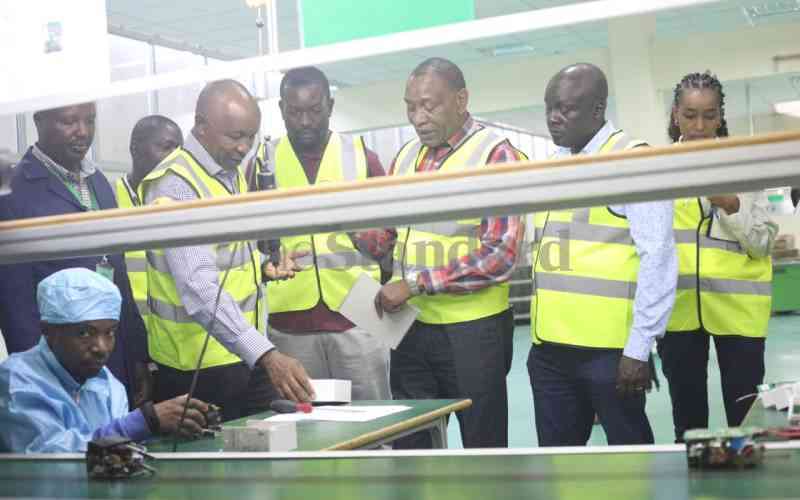
The Senate Energy has asked the Kenya Power and Lighting Company(KPLC) to come up with long-term contractual framework with electricity meter producers to guarantee them they get business for their products with the country currently having a shortage of 450,000 meters.
The Committee Chairman Wahome Wamatinga who led members on a fact-finding mission to the premises of four smart electricity metre companies in Nairobi said that this will give the companies an assurance of their products being acquired since some of them have been idle for the last two years.